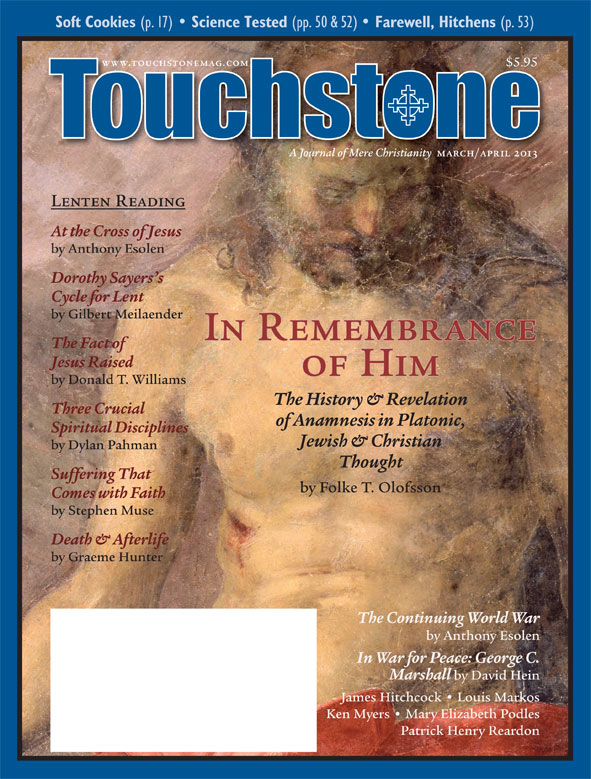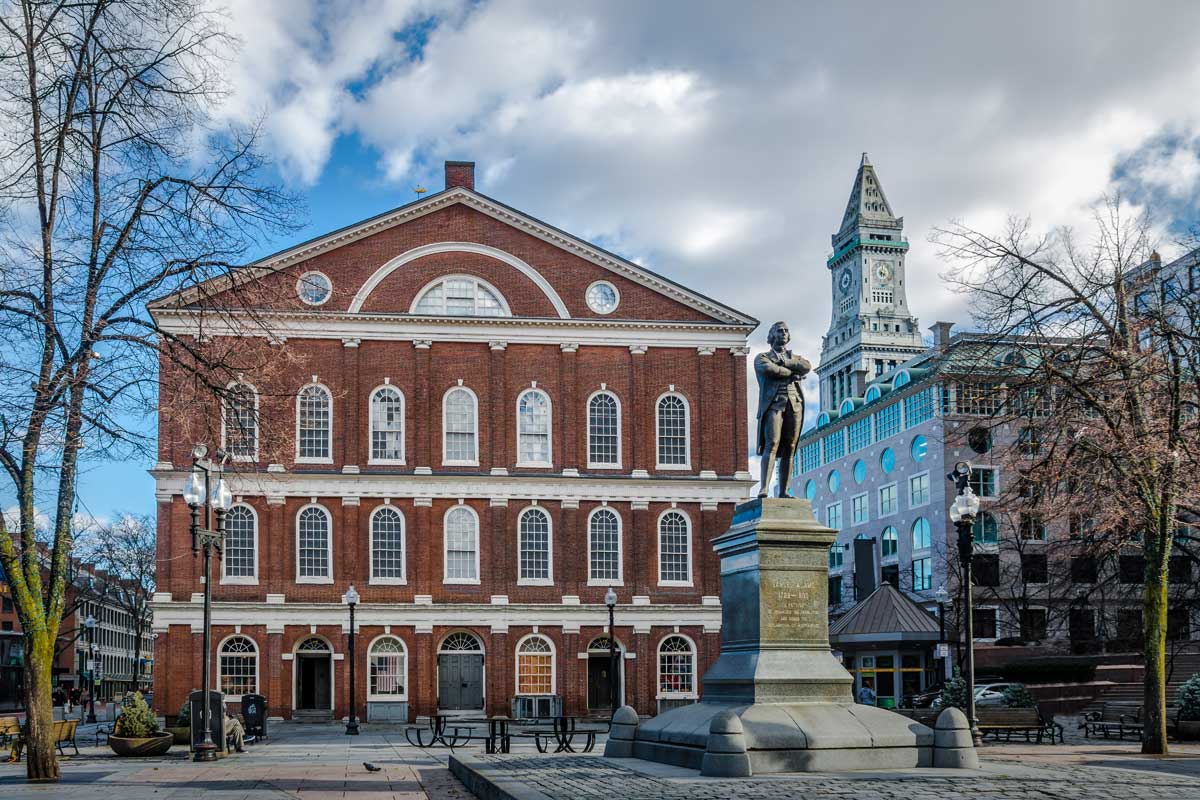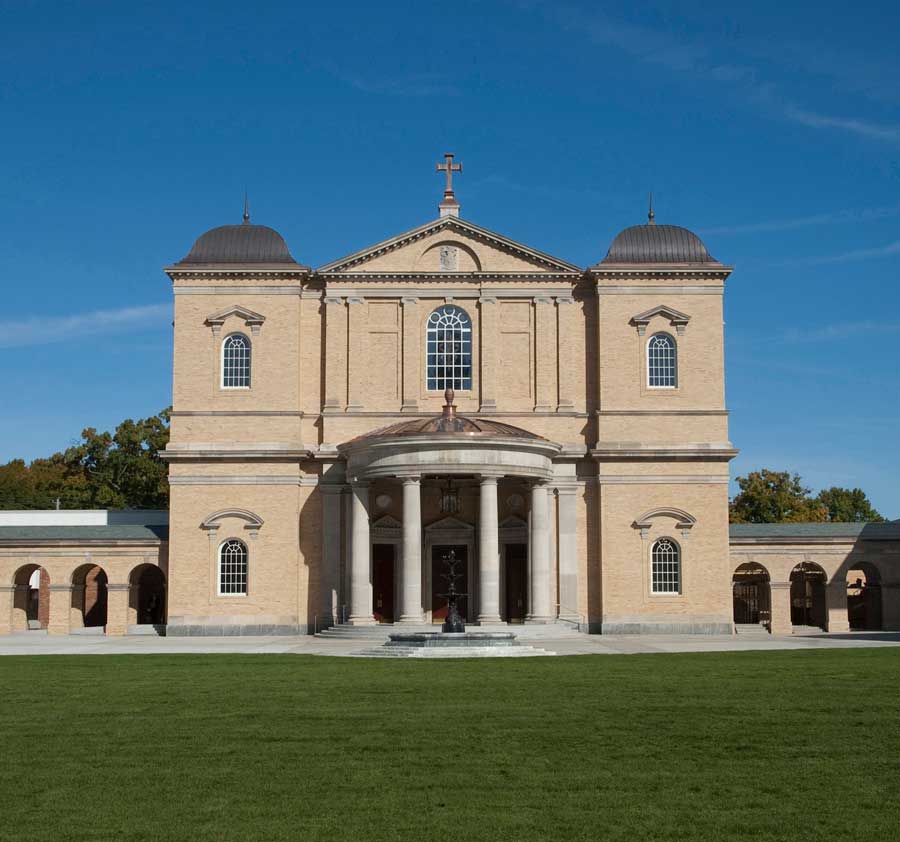Faith Against Faith
Whittaker Chambers, Potemkin Villages & the Ongoing War
Then felt I like some watcher of the skies
When a new planet swims into his ken;
Or like stout Cortez when with eagle eyes
He star'd at the Pacific—and all his men
Look'd at each other with a wild surmise—
Silent, upon a peak in Darien.
—John Keats, from "On First Looking into Chapman's Homer"
A few days before I wrote these words, I opened for the first time Whittaker Chambers's Witness. It is his account of the Alger Hiss espionage case. And, as Chambers says, "all the props of an espionage case are there—foreign agents, household traitors, stolen documents, microfilm, furtive meetings, secret hideaways, phony names, an informer, investigations, trials, official justice," and, he might have added, assassinations and suicides. But if that were all, he writes to his children, "it would not be worthy my writing about or your reading about." Instead, it is a book that witnesses against one faith and for another.
When stout Cortez with his eagle eyes stared at the Pacific—it was actually Balboa, but Keats's error gives us the mightier line—he saw something wholly new, like the astronomer who glimpses an unknown planet. To read Chambers, though, is not to read something wholly new. It is to climb a promontory from whose lookout a maze of paths and woods and streams, of ravines and hills, of seeming contradictions in the lie of the land, is seen for what it is. The objects can be placed. Their relations become clear. Things make sense.
From that promontory one sees the battlefield of the last hundred years or more laid out, and what had seemed to be unrelated skirmishes now appear as moments in a continuing war, regardless of whether the soldiers in the trenches knew what they were about, or suspected that the fight was for more than one scrap of local land—a law here, a school there. The Hiss-Chambers battle was not, as the press labored to portray it, a grudge match between personal enemies. It was, as Hiss and Chambers knew, a battle of faith.
The Second-Oldest Faith
Chambers insists upon this. He will not allow any complacency. Communists "are that part of mankind which has recovered the power to live or die—to bear witness—for its faith." They are not mad; they are not sociopaths. Communism is not just "the writings of Marx and Lenin, dialectical materialism, the Politburo, the labor theory of value, the theory of the general strike, the Red Army, secret police, labor camps, underground conspiracy, the dictatorship of the proletariat." It is not parades through Moscow and Paris and Rome. What binds Communists "across the frontiers of nations, across barriers of language and differences of class and education, in defiance of religion, morality, truth, law, honor, the weaknesses of the body and the irresolutions of the mind, even unto death, is a simple conviction: It is necessary to change the world."
That is the key. With those words, one stands upon the high rock, ready to raise one's eyes and see. The world is evil; the world sags with the sludge of history and man's inhumanity; the world must be changed. Thence comes what Chambers calls man's "second oldest faith." It is the vision of Man without God: Ye shall be as gods, says the serpent. But because man's soul yearns for the transcendent God, this second-oldest faith must collapse that soul into what Chambers calls "mind," the bare faculty of rational deduction. With it, man must reform "the meaningless chaos of nature, by imposing on it his rational will to order, abundance, security, peace." It is "the vision of materialism."
The first commandment of this faith is accepted by many who do not know what army they fight for. It is to be found, says Chambers, not in the Communist Manifesto, but "in the first sentence of the physics primer: 'All of the progress of mankind to date results from the making of careful measurements.'" Soul, meet slide-rule. Wisdom, beauty, and love are dismissed from the room, and man the toolmaker becomes the product of his tools.
What do these insights explain? I will examine three sets of phenomena.
The Potemkin Village
Anthony Esolen is Distinguished Professor of Humanities at Thales College and the author of over 30 books, including Real Music: A Guide to the Timeless Hymns of the Church (Tan, with a CD), Out of the Ashes: Rebuilding American Culture (Regnery), and The Hundredfold: Songs for the Lord (Ignatius). He has also translated Dante’s Divine Comedy (Random House) and, with his wife Debra, publishes the web magazine Word and Song (anthonyesolen.substack.com). He is a senior editor of Touchstone.
subscription options
Order
Print/Online Subscription

Get six issues (one year) of Touchstone PLUS full online access including pdf downloads for only $39.95. That's only $3.34 per month!
Order
Online Only
Subscription

Get a one-year full-access subscription to the Touchstone online archives for only $19.95. That's only $1.66 per month!
bulk subscriptions
Order Touchstone subscriptions in bulk and save $10 per sub! Each subscription includes 6 issues of Touchstone plus full online access to touchstonemag.com—including archives, videos, and pdf downloads of recent issues for only $29.95 each! Great for churches or study groups.
Transactions will be processed on a secure server.
more from the online archives

33.1—January/February 2020
Do You Know Your Child’s Doctor?
The Politicization of Pediatrics in America by Alexander F. C. Webster
calling all readers
Please Donate
"There are magazines worth reading but few worth saving . . . Touchstone is just such a magazine."
—Alice von Hildebrand
"Here we do not concede one square millimeter of territory to falsehood, folly, contemporary sentimentality, or fashion. We speak the truth, and let God be our judge. . . . Touchstone is the one committedly Christian conservative journal."
—Anthony Esolen, Touchstone senior editor








